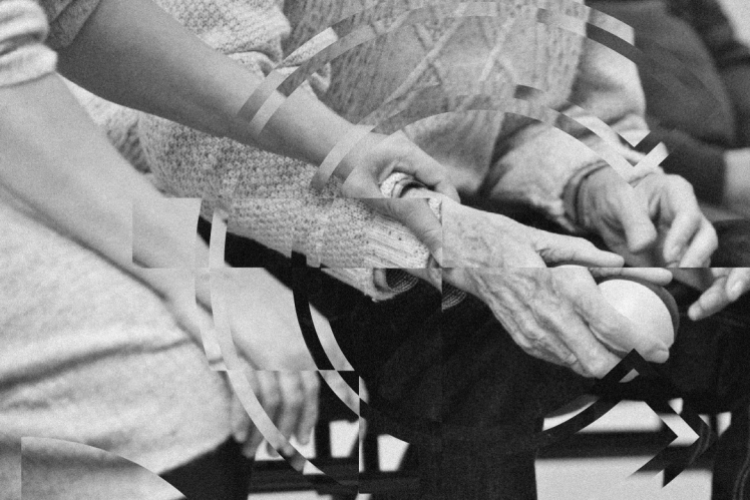
Serve Humanism Now! Against Western Media’s Double Standard
In this Open Column Submission, Mohamad Akmal Albari highlights the concerningly disturbing prevalence of disproportionate words used by a number of biased media in broadcasting the reality on Palestinian soil, and how media should serve humanism, not Western propaganda nor its double standard.
Words by Whiteboard Journal
In the brief span of just one month, a large number of 10,000 Palestinians have been killed, including women and children. The Israeli military campaign over Palestine began after the Hamas attack on October 7 and resulted in a massacre in the field. What we are seeing through social media platforms that spread news regarding the dreadful situation in Gaza is forcefully constructing a wrath mass. Thus, the mass media, in some ways, are dividing the dissemination of their coverage.
The moment Hamas attacked some civilians, took hostages, murdered babies, and raided a music festival, it became apparent that Israeli forces were capturing empathy and seizing Gaza at all costs in the name of self-defense. Therefore, some media are taking advantage of shaping and perceiving Hamas as a terrorist militant group. The public should condemn Hamas’s assault on Israel.
The “double standard” in Western media is creating an unequal tempest in the world. The editorial by The New Humanitarian discusses how the media reports and covers the Ukraine-Russia conflict and the Israeli-Palestinian war. Furthermore, the media use highly disproportionate words to describe Hamas actions, referring to “brutal killings”, and the group as “terrorists” and portraying the “horror of Hamas terror”. However, Israeli Defense Forces (IDF) actions are normalized, despite the slaughter of innocent civilians in Gaza and the destruction of buildings under accusations of being Hamas shelters.
Hala Aylan, a Palestinian-American woman writer, has revealed profoundly how Palestinians survive by enduring a double standard and vicious, unprovoked stigma. It appears that all responsibilities are placed on them. They are fleeing while Israeli air strikes damaged roads, prove their clean-handedness, beg journalists to report, and endure the trauma of mental massacre. Adding salt to the wound, she described how the Palestinian diaspora occurs as a result of a mass forced exile.
The Israeli government should be held accountable for committing war crimes during their military campaigns, yet the United States always supports the IDF assaults in UN Security Council resolutions with a veto. In contrast to how they struggle to unveil Russia’s attack on Ukraine.
Thus, the media plays a key role in spreading the idea that war crimes are based on UN conventions—if done correctly. However, media has the potential to be poisonous for the realms of civilization, where they ought to encourage the government to watchdog those who actually serve public needs. Comprehensive and proportional coverage can provide evidence of Israeli and Hamas movements. According to Albert Schäffle, quoted from The Social Theories of the Press, media requires independence to maintain freedom of the press—if production and dissemination remain free and undisturbed by bureaucratic hands and capitalists.
Besides, the media is a public opinion institution, as Karl Bucher conviened. They formulate information with the people that could be used for judgments and ideas of individuals or groups as those referring to public opinion. Then, the media, however, captivates readers with vibrant judgment. Mustafa Bayoumi in The Telegraph said what people saw in Western media buried the Israeli-Palestinian battlefield affair.
He commented, “If you only watched UK news, you would be likely to presume that Palestinians always act while Israel only reacts. You might even think that Palestinians are the ones colonizing the land of Israel, no less.” In addition, Bucher might be right. The public would remain incapable of criticizing the media coverage that affected their opinions and would follow the misleading information spread by the media.
On the other side, Bucher interpreted the media as a business enterprise, producing and aiming at special interests or parties. Only a few media have reminded the people about the cleansing of Palestinians ever since the 1948 Nakba event or the Balfour Declaration in 1917, and the inseparable Israeli apartheid crimes in 2002 to build a 700-kilometer wall separating Palestinians. They barely delve into what happened in Palestine’s ground history and dramatize the beginning of the Hamas attack.
Although the double standard of the Western media outlook is widespread, the truth narrative was never sufficient against them. Through social media platforms, public censure and resistance to falsity, media propaganda, provocative notions, and disinformation, I believe media can guide us to seek whatever they regulate and the principles they hold dear—unlike failed independent media outlets that are siding with the Israeli and American governments.
To be considered, the dissemination should take humanism coverage comprehensively to no end (an option that some media ought not to take as they distance themselves from frightening and dreadful information). Humanism regards “fortiter in re, suaviter in modo” (gently in manner, firmly in action) as enhancing morality and striving for vital humanity. Indeed, the media should not ignore its elements of journalism, particularly loyalty to citizens and public criticism forums.
In conclusion, the public can argue to encourage proportional coverage against the double standards of media and propaganda, which has become the degeneration of press pride. That is how the media works and exists: to promote humanism and serve the public.












